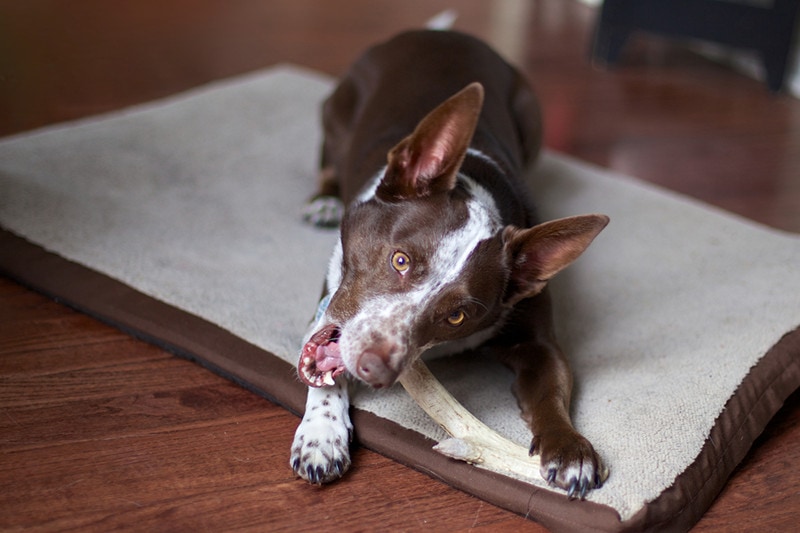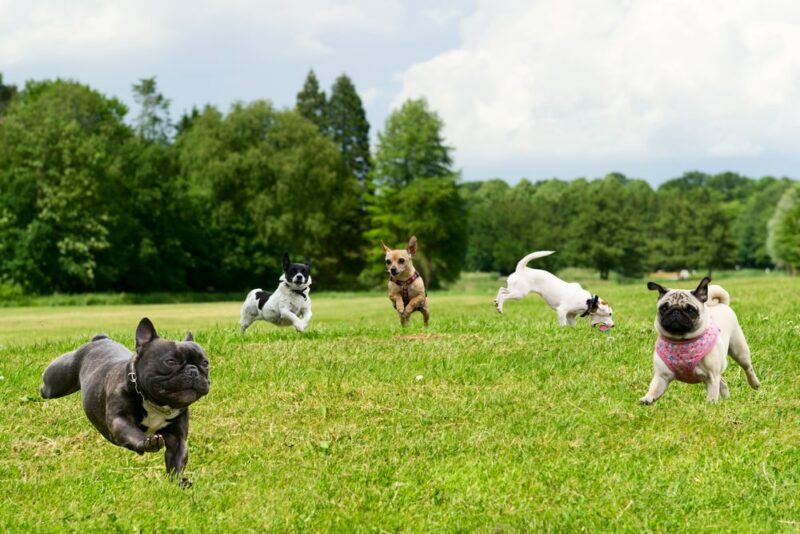When & Why Should Dogs Wear a Muzzle? Vet Approved Tips

Updated on
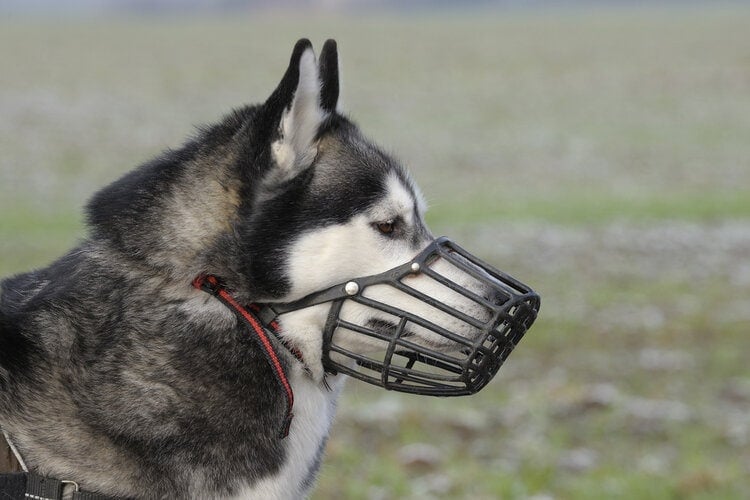
Dogs have been man’s best friend for centuries and there is no doubt that they are loyal and loving animals. We love them and the feelings are mutual. However, there are some situations where a muzzle may be necessary for the safety of both the dog and its owner. This can feel like a punishment—but it’s all about safety. Situations that bring out the fighter in your dog may require muzzling—the last thing you want is to cause injury to another person.
Responsible pet ownership means making choices for our pets to keep them—and others—safe. When taking your dog to a veterinarian or other medical professional, being muzzled may keep them from biting someone. Read on below for more about when and why your dog should be a muzzle.
The 5 Situations That Might Require the Use of a Muzzle
Muzzles are worn by dogs for a variety of reasons, primarily for the safety of others. In the event that your dog is scared and has a history of nipping or biting in any of the following scenarios, then you may want to consider muzzling them. The consequences of biting can be serious for you—and particularly for your dog. Muzzling really is better than the alternatives. You might want to muzzle your dog in the following situations:
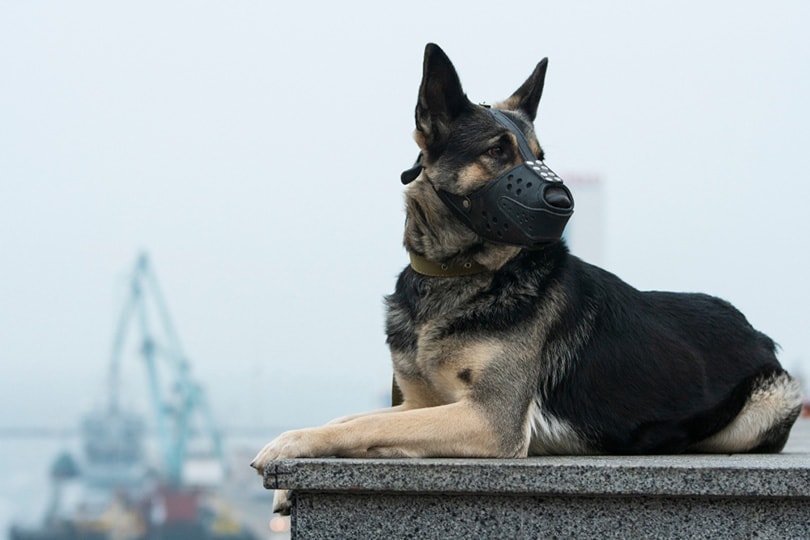
- If your dog is known to show aggression towards people or other animals, you may want to consider using a muzzle to prevent them from causing harm. Aggressive breeds can suddenly lunge at others. This could be due to a variety of reasons, including fear, anxiety, or territorial impulses.
- Some dogs become aggressive or bite when grooming is attempted, such as when their nails are being clipped or they’re getting a haircut. It’s not fair to these professionals to put them at risk. A muzzle will help to protect the groomer from these aggressive or biting behaviors.
- When a dog is injured or suffering, it is possible for them to become defensive and bite a vet or another handler. If your dog is already showing signs of distress, you may balk at the idea of putting a muzzle on them. But when they are in a state of pain, biting becomes much more likely, and this type of situation may require the use of a muzzle.
- Some dogs will eat anything. It is important to remember that your dog may be prone to scavenging and eating things they should not, such as garbage or pet feces. This can make your dog sick. A muzzle can help prevent this behavior and ensure the dog’s safety at all times.
- A muzzle can be a great tool when it comes to dog training. Some dog trainers use muzzles as part of training exercises. For example, if the dog is being trained to control their aggressive behavior, a muzzle will ensure the trainer’s and other dogs’ safety.
Getting a Good Fit
If you’re using a muzzle, it is important to consult with your veterinarian first to ensure that it is safe for your dog and meets their specific needs. You want your dog to be at ease in their new gear. Not all muzzles are created equal, so it is important to make sure that the one you choose fits your dog well.
From extra small to extra-large—they come in a variety of shapes and sizes and are made in a multitude of materials. Make sure the muzzle is pleasant to wear, it should fit snugly while not being too tight or uncomfortable. If you get the fit right, it’s less likely that your dog will have a problem wearing it. Be sure the muzzle has appropriate padding and protection against cuts and injuries. Watch out for signs that your dog’s skin or hair is being rubbed away. Some muzzles have a hard outer shell that can cause abrasions or even injuries if rub against your dog’s nose or mouth wrong.
If in doubt, consult with a professional about what type of muzzle would be best for your pet.
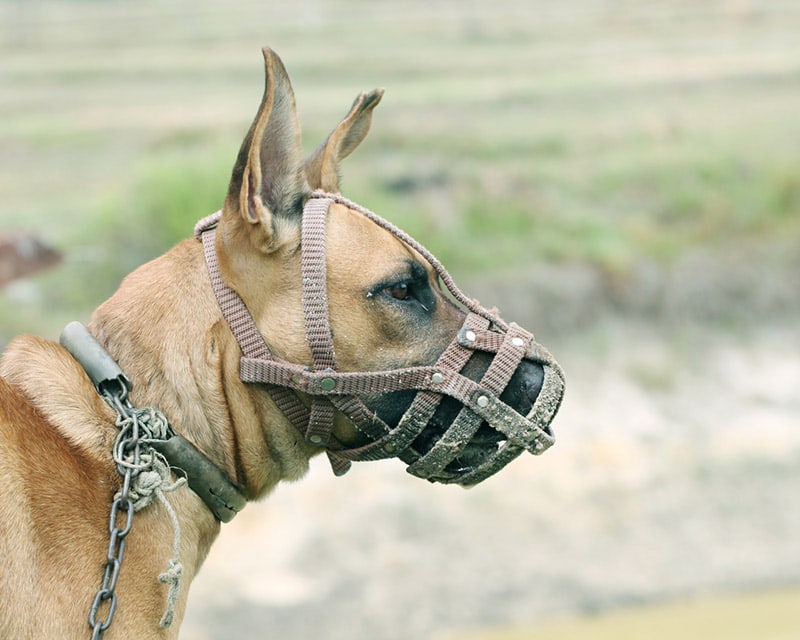
Final Thoughts
In conclusion, there are many factors to consider when deciding when to muzzle your dog. Don’t feel guilty if you have to go this route. It is important to understand the basics of canine etiquette and how your dog may react in certain situations. Muzzling is a responsible behavior for some dogs and some breeds. If you are ever unsure or uncomfortable with whether or not to muzzle your dog, speak to your vet for expert advice.
Featured Image Credit: Ana Gram, Shutterstock



